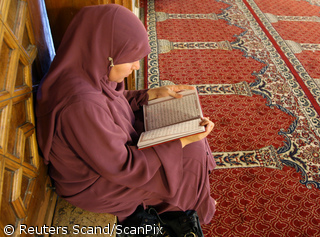The Moscow City Duma on Wednesday tentatively approved a draft bill introducing administrative responsibility for residents, whose children stay in the city streets and public places not attended by their parents or persons substituting them.
Published:
1 May 2003 y., Thursday
The bill was passed with 23 vs 1 vote with 2 abstentions. The document was first submitted to the house in December last year, but then it was rejected.
Notwithstanding the positive outcome of the voting, the bill came under harsh criticism during the Wednesday debate. In particular, many deputies believe the new law would scarcely be enforceable. Under that law, police would have to stop all teenagers for ID checks after 2200, since effective laws do not oblige Russian residents to always carry their personal IDs with them.
Besides, the authors of the bill have failed to discuss their initiative with the authorities of the encircling Moscow Region, which means Moscow teenagers will be able to evade police beyond the Moscow ring road, whereas detaining a teenager from the Moscow Region in the capital by night would be unlawful, hold some deputies. Some deputies fear the law would encourage bribe-taking.
Under the bill passed by the city Duma, teenagers under 14 will not be allowed to stay in the streets and public places from 2200 till 0600. Parents who fail to observe the new rules will have to pay a fine of 3-5 minimum monthly wage equivalent (300-500 rubles).
Šaltinis:
Gazeta.Ru
Copying, publishing, announcing any information from the News.lt portal without written permission of News.lt editorial office is prohibited.
The most popular articles
 The use of animals in scientific experiments could soon be reduced by new legislation, approved by the Agriculture Committee on Monday, which strives to strike the right balance between improving animal welfare and assisting research against diseases.
more »
The use of animals in scientific experiments could soon be reduced by new legislation, approved by the Agriculture Committee on Monday, which strives to strike the right balance between improving animal welfare and assisting research against diseases.
more »
 EU holidaymakers travelling by plane or train are protected by a whole range of consumer rights.
more »
EU holidaymakers travelling by plane or train are protected by a whole range of consumer rights.
more »
 The European Commission welcomes the European Parliament voting in favour of a regulation on rights of passengers travelling by sea and by inland waterways.
more »
The European Commission welcomes the European Parliament voting in favour of a regulation on rights of passengers travelling by sea and by inland waterways.
more »
 Mobile phones, computers, TVs - we like them but where do they go when we are finished with them? In the worst case they can be dismantled by hand for scrap by children in developing countries.
more »
Mobile phones, computers, TVs - we like them but where do they go when we are finished with them? In the worst case they can be dismantled by hand for scrap by children in developing countries.
more »
 Following the death of President Algirdas Mykolas Brazauskas, on 28 June Lithuanian Embassies abroad opened the door for people, who want to sign the Condolence Book.
more »
Following the death of President Algirdas Mykolas Brazauskas, on 28 June Lithuanian Embassies abroad opened the door for people, who want to sign the Condolence Book.
more »
 Passengers will enjoy easier access to information about their rights when travelling by rail or air thanks to a Europe-wide publicity campaign in 23 languages launched by the European Commission today.
more »
Passengers will enjoy easier access to information about their rights when travelling by rail or air thanks to a Europe-wide publicity campaign in 23 languages launched by the European Commission today.
more »
 Lithuania has been grieved by the heartbreaking news about the decease of Algirdas Mykolas Brazauskas, former President, Prime Minister, Signatory to the Act of Independence, and the first Head of State of Lithuania after the Restoration of Independence.
more »
Lithuania has been grieved by the heartbreaking news about the decease of Algirdas Mykolas Brazauskas, former President, Prime Minister, Signatory to the Act of Independence, and the first Head of State of Lithuania after the Restoration of Independence.
more »
 We have lost a warm person and a prominent politician who had been at the wheel of state at challenging and difficult stages in the history of Lithuania.
more »
We have lost a warm person and a prominent politician who had been at the wheel of state at challenging and difficult stages in the history of Lithuania.
more »
 Europe's financial and economic crisis is increasingly becoming a social crisis too, and is testing European solidarity to the limit.
more »
Europe's financial and economic crisis is increasingly becoming a social crisis too, and is testing European solidarity to the limit.
more »
 In a move to enforce a style of dress they believe is in accordance with sharia law, the authorities in the Muslim Indonesian province of West Aceh are handing out long skirts to women wearing tight pants.
more »
In a move to enforce a style of dress they believe is in accordance with sharia law, the authorities in the Muslim Indonesian province of West Aceh are handing out long skirts to women wearing tight pants.
more »